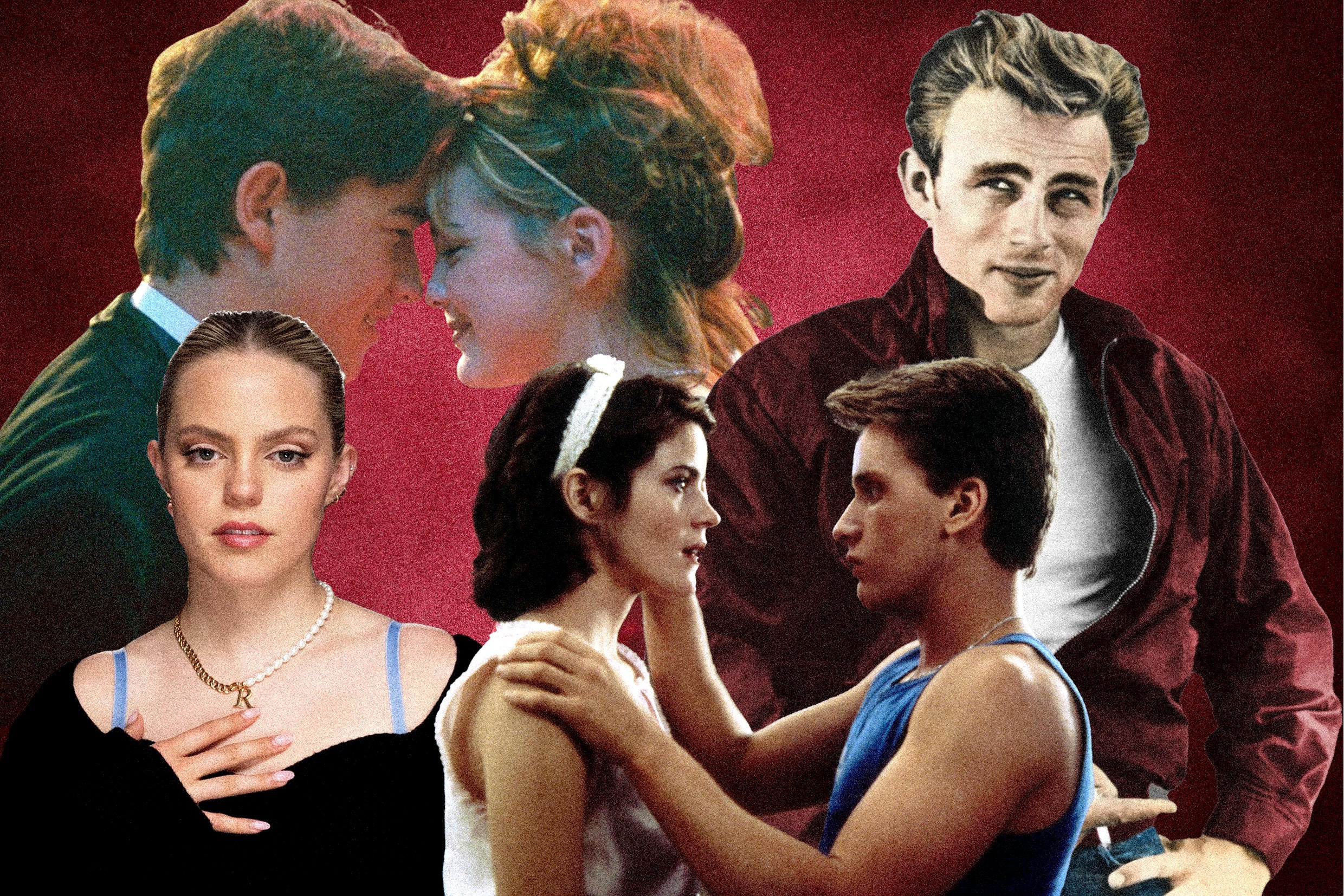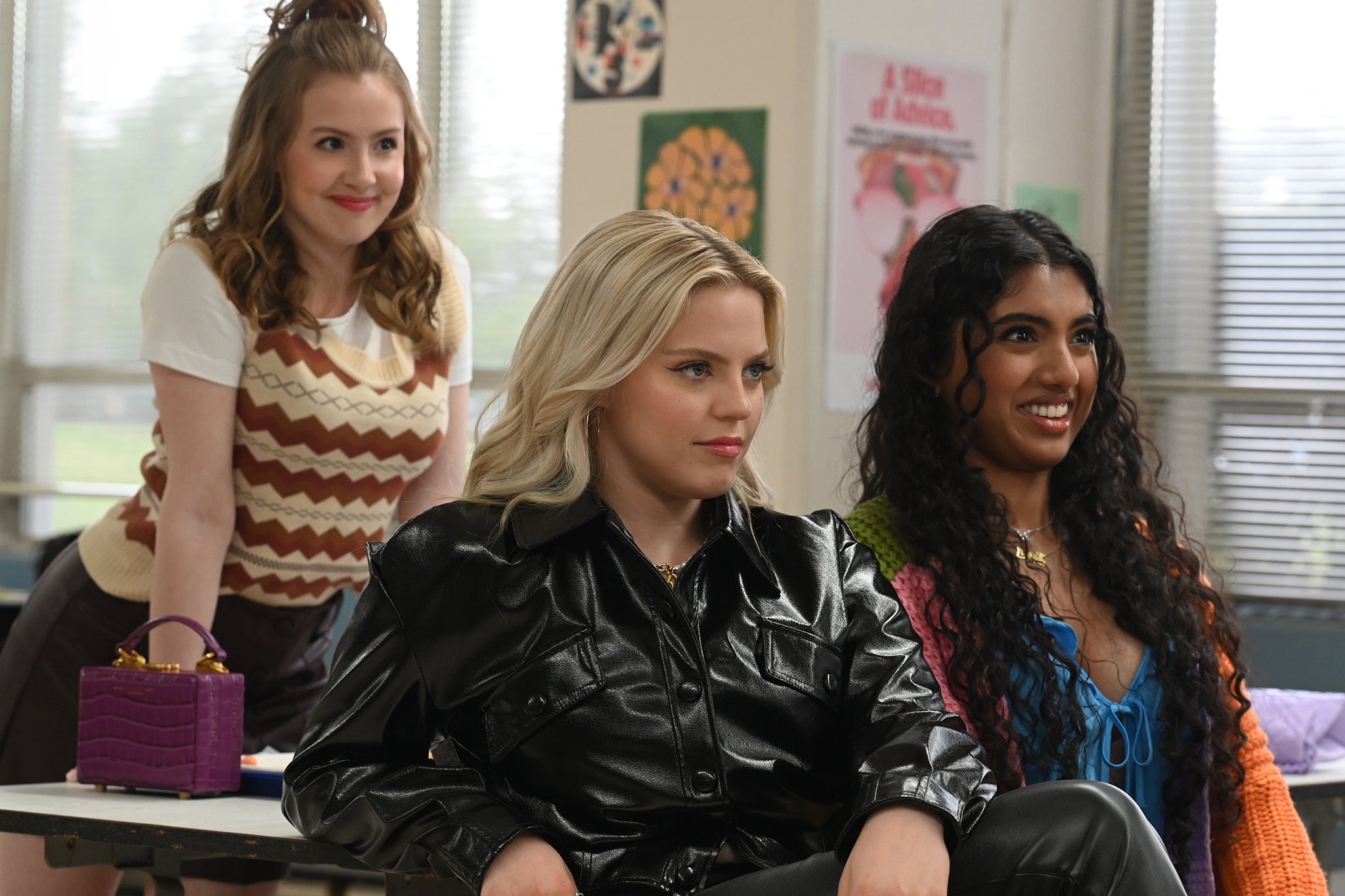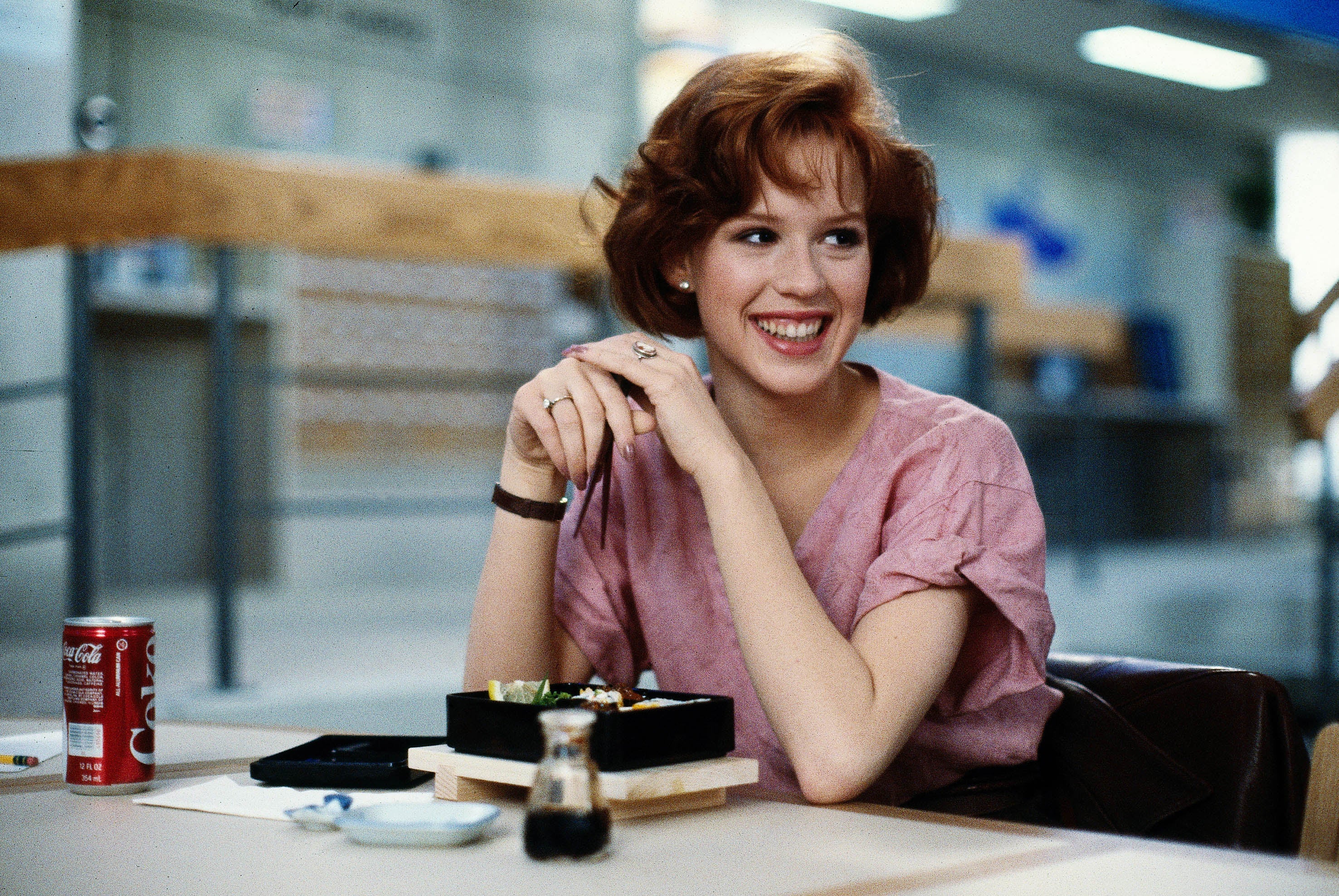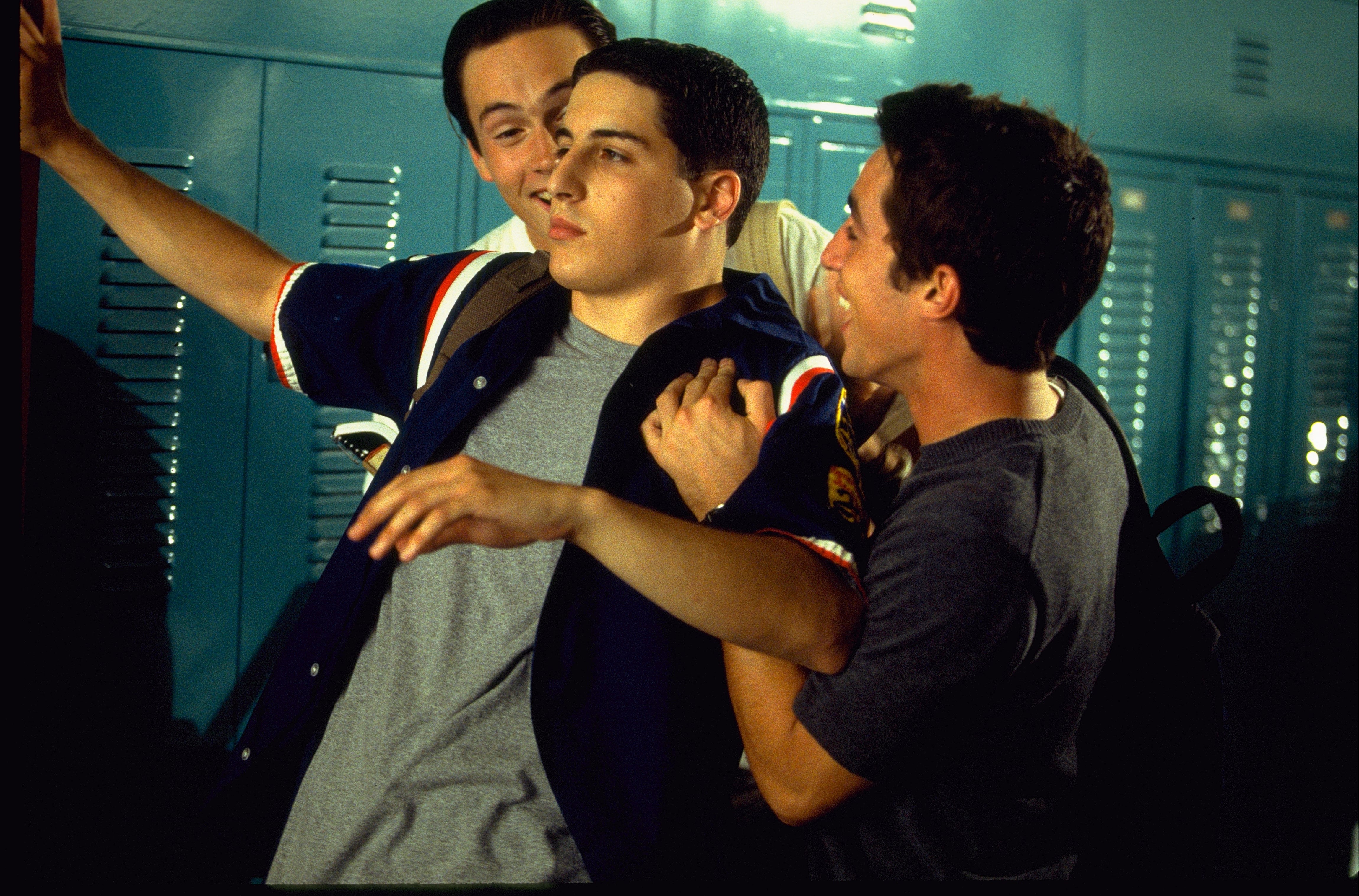Mean Girls and Hardy boys: The not-so changing face of the teen movie
Whether it’s a musical reboot of a hit Noughties comedy like ‘Mean Girls’, or a cinematic re-release of an old favourite like ‘10 Things I Hate About You’, there’s something about the teen movie that seems unable to escape the past. From ‘Rebel Without a Cause’ to ‘Eighth Grade’, Geoffrey Macnab looks at the genre that refuses to grow old

When the musical reboot of Mean Girls chasséd onto cinema screens in early January, certain critics were underwhelmed. This was a teen movie based on another teen movie from 20 years before – that was itself inspired by the hundreds of other teen movies that preceded it. “Unsatisfying”; “culturally irrelevant”; “frantically self-regarding”: these were among the many harsh remarks that greeted the brash film’s arrival.
But then again, reviewers have long struggled to take teen movies seriously. They are among cinema’s most durable and commercially successful genres – and yet everyone still scoffs at them. Often, they’re dismissed for being either too frothy or too earnest. The New York Times complained about the “deadly self-importance” of John Hughes’s 1985 classic teen ensemble piece The Breakfast Club, but then, a few years later, grumbled about the blandness of coming-of-age comedy The Princess Diaries, as if the film weren’t self-important enough.
The complaint was nothing new: the same paper had in fact been grousing about the formulaic side of teen movies since 1940, when the Mickey Rooney teen film Andy Hardy Meets Debutante saw the genre come of age. “We can’t help speculating upon how much they all look alike,” the NYT wrote. But the reviewer had inadvertently stumbled on one of the eternal truths about teen movies. No matter how much filmmakers strive to modernise the format, they always seem to end up in the same place as before.
This, of course, is their charm, and why they seem so timeless. If you’re an adolescent in a teen movie, it doesn’t matter if you’re a girl in a Sacramento high school in the early 2000s (like the protagonist of Lady Bird), or a rebel with a quiff (but no cause) 50 years earlier – you’ve still got to go through the same growing pains and rites of passage. It’s no wonder, then, that distributors seem eager to re-release old teen movies in cinemas. This week, 10 Things I Hate About You, starring the late Heath Ledger and Julia Stiles, will be back in cinemas to mark its 25th anniversary. The film’s reputation has only sweetened with time: when an emotional Stiles recently read out a poem from the film at a book festival, the footage from her mini-performance instantly went viral.
By common consensus, the US teen movie came of age with Rooney in the early 1940s. It was “the first time in history all but a small fraction of Americans teenagers were in high school”, as a 1957 history of “the American teenager” pointed out. The Andy Hardy films, often co-starring Judy Garland, were huge hits, and set a template that hundreds of other films have followed. Rooney’s Andy Hardy was an ebullient and mischievous figure, forever getting into romantic or financial scrapes – only to be steered back onto the straight and narrow by the wise and kindly counsel of his father, Judge Hardy (Lewis Stone). The Hardy movie titles give away their preoccupations. There were films in the series such as 1938’s Love Finds Andy Hardy, where Andy becomes emotionally entangled with three different girls at once, and 1939’s Andy Hardy Gets Spring Fever, in which Andy develops a dangerous crush on his drama teacher.
Society may have changed but adolescence, at least as depicted on screen, hasn’t. The teen protagonists today in films like Jason Reitman’s Men, Women & Children or Bo Burnham’s Eighth Grade may have smartphones and social media accounts but they are suffering from familiar anxieties about their looks, status and romantic lives. Creeps, narcissists and gossips still prowl the school corridors – and hormones are running as wild as ever.
The evergreen appeal of the teen movie formula is underlined by the surprisingly robust box office performance of the latest Mean Girls (a No 1 hit in the UK). Young audiences caught up in their own turbulent teenage experiences still relish seeing their problems and dilemmas reflected on screen, and teen films continue to inspire near-religious devotion. They matter to their fans, who will keep on revisiting them for years afterwards. As Hughes (the writer-director of some of the greatest teen pictures of the 1980s ) perceptively observed: “People forget that when you’re 16, you’re probably more serious than you’ll ever be again. You think seriously about the big questions.”

The new Mean Girls is penned by writer-comedian-star Tina Fey (of Saturday Night Live fame) who also oversaw the original. In the musical, she again draws on her memories of high school bullying and power games.
“I’m 53 now, but I still think about it. I think all women have a mean girl moment. You’ve either been mean, been a victim of meanness or both,” Fey recently said, explaining why she wanted to revisit her hit movie from 20 years ago. Younger cinemagoers won’t even have been born when Lindsay Lohan’s home-schooled ingenue Cady Heron was being picked on by Rachel McAdams’ supremely bitchy Regina George in the first movie – but they’re probably still aware of it.
“This isn’t your mother’s Mean Girls,” the trailer proclaims, slyly pretending to distance the new movie from its predecessor – when the real aim is to link them. The marketing is playing on the deep nostalgia that goes hand in hand with the genre.
It’s often suggested that the reason Hughes’s most famous films (Ferris Bueller’s Day Off; The Breakfast Club; Pretty in Pink) resonated so strongly with cinemagoers is that he cared about what made teenagers tick. As his biographer Kirk Honeycutt put it: “His films connected because they spoke to teens as if they were adults.” The Hughes teen pictures had a streak of sincerity that you simply don’t find in other youth-oriented movies of the period. Hughes himself used to joke that these “were really films for adults who wanted to ogle teenage girls in the shower”.

Despite the recurring similarities within the teen genre, the format has proved to be remarkably flexible. It encompasses everything from coming-of-age films (Barry Levinson’s Diner; George Lucas’s American Graffiti; Rob Reiner’s Stand by Me) to grossout comedies (American Pie), to “social problem” films (Blackboard Jungle), to terminal illness tearjerkers (The Fault in Our Stars). The genre stretches to both the moody and poetic machismo of Francis Ford Coppola’s The Outsiders and the hilarious satire of Olivia Wilde’s Booksmart, which follows two high school girls mocked for their academic streak.
“The bad boy from a good family…Warner Bros challenging drama of today’s teenage violence,” reads the slogan on the poster for Nicholas Ray’s Rebel Without a Cause, as if this was a realist documentary, not a melodramatic star vehicle for a sensitive and charismatic young James Dean. At a leap, moody arthouse films like Barry Jenkins’ Oscar winner Moonlight, a coming-of-age story about a gay Black kid, can be defined as teen movies. Some have even tried to claim Tom Holland’s Spider-man pictures as teen dramas, even if they come dressed up in all that spandex finery.
One of the genre’s continuing fascinations is its function as a breeding ground for new talent. Stars like Tom Cruise, Harrison Ford, Garland and, more recently, Shailene Woodley have been seen in teen movies. For viewers, there is a natural interest in spotting them at the beginning of their career – and a morbid fascination about their colleagues who fell by the wayside.

It’s not as if the teen movie started with Rooney and Garland. William Wyler’s 1937 New York-set crime thriller Dead End, starring Humphrey Bogart, featured teenage slum delinquents, the Dead End Kids. These ragamuffins made such a strong impression that they later got their own mini-franchise. They’re like urban depression-era descendants of Mark Twain’s Huck Finn – and they paved the way for all those films about moody adolescent rebels.
If you want any final proof of the immutable timelessness of the teen movie, just look at the source material behind so many of the best ones – classic literature. Emma Stone teen romcom Easy A was inspired by Nathaniel Hawthorne’s novel The Scarlet Letter; Clueless, Alicia Silverstone’s finest hour, took its plot from Jane Austen’s Emma; 10 Things I Hate About You riffed on Shakespeare’s The Taming of the Shrew; Cruel Intentions, a dark teen seduction romance, was inspired by Les Liaisons Dangereuses.
For 80 years, teenagers have been romanticised, patronised and portrayed as social menaces by Hollywood. Teen movies now come in so many different guises that it’s easy to overlook how little the genre has changed since the days of Andy Hardy and the Dead End Kids. Teachers, parents and cops were putting obstacles in the way of young protagonists even then – and they’re still doing exactly the same today.
‘Mean Girls’ is in cinemas now. ‘10 Things I Hate About You’ is re-released on 2 February






Join our commenting forum
Join thought-provoking conversations, follow other Independent readers and see their replies
Comments